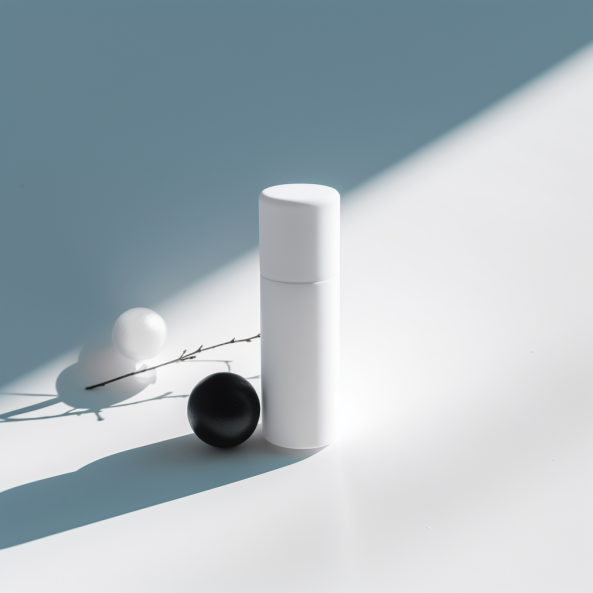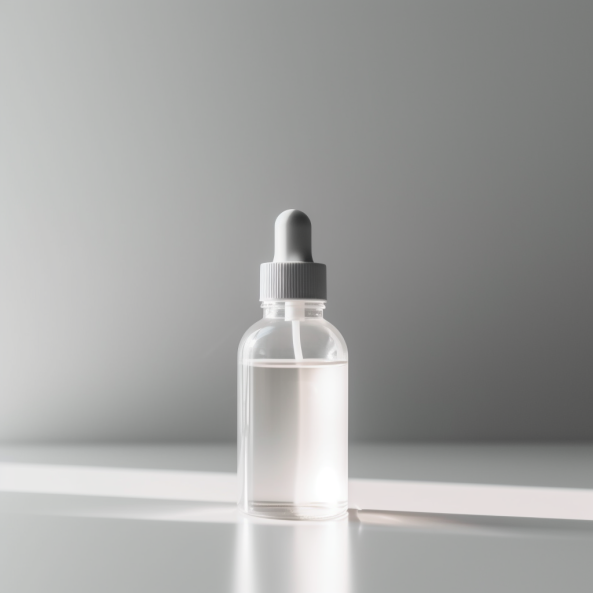Actives A-Game
Choose the right actives for your skin
It’s a fact – there are only a handful of skincare ingredients that are actually proven to do something meaningful in our skin when used in topical products – especially if your goals go beyond moisturizing. Choose your skin goal and see what actives actually work for it – based on scientific evidence.
Proven actives by skin goal

Anti-Aging

Reduce acne & clogged pores

Even skin tone
Quick overview of proven actives
Anti-aging
Skin aging is mainly caused by sun damage, so protecting our skin from the sun with a daily broad-spectrum sunscreen of SPF30+ is vital. But even with sunscreen, our skin is still exposed to free radicals that can harm our skin cells, making it important to add antioxidants to our skincare routine.
Antioxidants can neutralize these free radicals, and while the best source of antioxidants is raw plant foods, applying them topically can also be helpful. L-Ascorbic Acid (vitamin C) is a potent antioxidant that can be found in many skincare products. Vitamin B3 (niacinamide) doesn’t work as an antioxidant itself, but it increases the skin’s ability to produce its own antioxidants.
Retinoids are also effective at repairing sun damage, increasing collagen production, and controlling skin pigmentation. Tretinoin, adapalene, retinyl retinoate, hydroxypinacolone retinoate, and retinal are the most effective forms of retinoids, and they can be found in many skincare products.
Other active ingredients like bakuchiol, peptides, and adenosine are helpful for anti-aging, but the evidence behind them are less solid. At the same time, people with sensitive skin sometimes can’t tolerate retinoids or ascorbic acid. In this case, it makes sense to build your skincare routine around actives like bakuchiol, peptides and niacinamide.
When using anti-aging skincare products, it’s essential to avoid skin irritation. Irritation causes inflammation in skin, and this speeds up the aging process. It’s better to use fewer products and avoid inflammation than to use too many products that could damage your skin.
Acne and clogged pores
Acne and clogged pores are not the same thing, but they almost always come together because clogged pores can trigger inflamed acne. It’s best to address both issues simultaneously in your skincare routine.
Skin pores, or follicles, can become clogged when a mixture of skin debris and oil becomes sticky and settles on the pore’s surface. This mixture accumulates over time, forming a microcomedone that is not visible to the naked eye. Acne-causing bacteria grow rapidly inside the pore, and small hairs can become trapped. After two to four weeks, the microcomedone can develop into a visible comedone, either as a closed bump or an open blackhead. If the growing acne bacteria irritate the skin inside the pore, an inflamed acne spot appears.
Acne is an inflammatory skin condition. This means that when you have acne, the immune system in your skin is highly sensitive and responds with inflammation to any potential threat. Irritated skin “sees” the bacteria growing inside a clogged pore as a threat, resulting in inflamed spots. Interestingly, these bacteria exist on both acne-prone and acne-free skin, and they do not directly cause acne. As a result, acne is not an infectious skin condition, and the bacteria are referred to as “acne-triggering,” not “acne-causing.”
To combat acne, your skincare routine should target these three goals:
-
Balance skin sebum production and enhance skin cell turnover to prevent clogged pores.
-
Soothe inflammation in the skin to prevent clogged pores from turning into inflamed breakouts.
-
Decrease the growth of acne-triggering bacteria inside the pores.
Ideally, your skincare routine should target all three of these goals simultaneously.
Retinoids and niacinamide are the most effective actives for accomplishing the first two objectives. Bakuchiol may also aid in achieving these goals, but its effects are less researched and likely less potent.
Salicylic acid is effective in preventing pore clogging and reducing bacterial growth inside the pores.
Benzoyl peroxide and hypochlorous acid work similarly, deactivating acne-triggering bacteria.
Finally, to help calm your skin down, treat it as sensitive and avoid overloading it with fragrance, unneeded skincare products and extra ingredients.
In summary, a successful regimen for clogged pores should include one to three actives, such as retinoids, niacinamide, bakuchiol, or salicylic acid. For inflamed spots, you can add benzoyl peroxide or hypochlorous acid. However, since these two ingredients only work to control acne-triggering bacteria and are not beneficial to the skin, you may want to discontinue their use once your inflamed blemishes are under control.
Even skin tone and reducing pigmentation
Skincare actives that targets pigmentation can work in a few different ways. Some ingredients can get make skin cells produce less melanin. Actives like thiamidol, hydroquinone, arbutin, kojic acid, azelaic acid, tranexamic acid work this way (in dermatology, they are called “tyrosinase-inhibitors”). Other actives, like niacinamide can make skin store less melanin. Anti-oxidants like ascorbic acid help reduce the damage skin gets from sun exposure and reduce melanin production this way (it also works a tyrosinase inhibitor). Chemical exfoliants like glycolic or lactic acids remove the surface layer of the skin cells. This way skin gets to shed the cells with bigger melanin deposits faster. Retinoids help reduce pigmentation in a few different ways at once.
Overall, it is a good idea to combine 2-3 different anti-pigment actives in your regimen. Important warning: do not overdo it with actives and exfoliation. You want to avoid skin irritation, because irritation on its own can result in more pigmentation. This is especially important if your natural skin tone is dark.
Related Articles
Winter Skin Care: Navigating the Chilly Season with Healthy Skin
Let’s dive into understanding winter skin and how to best care for it.
When Buying Skincare, What Are You Really Paying For?
Ever wondered what’s behind the price tag of your skincare product? Are you just forking out for fancy ingredients and chic packaging? The reality may surprise you. Let’s break it down and see where your money really goes.
The Dark Side of Lightweight Sunscreens
Do lightweight sunscreens provide enough sun protection? Lightweight sunscreen formulas have a higher risk of not providing the sun protection they promise. Learn more in this article.
Azelaic Acid: How It Works and Why You Might Need It In Your Skincare
Azelaic acid may not be the most hyped skincare ingredient, but, frankly speaking, it deserves way more recognition. Despite its underappreciated status, azelaic acid boasts a myriad of evidence-backed benefits, including combating acne, mitigating rosacea, addressing hyperpigmentation, and fighting against free radicals.
Why Has My Skin Become Sensitive All of a Sudden?
Have you recently noticed your skin turning into a battleground of reactions? Is your once-placid complexion now flaring up at your go-to beauty products? You’re not alone. Suddenly sensitive skin can perplex anyone. Here’s a breakdown of why it might be happening and what you can do about it.
Sunflower Seed Oil: The Top Face Oil For Skin Barrier
Struggling to decide which face oil to choose? Sunflower seed oil might not be the most glamorous or exotic of skincare oils, but it could actually be the best for your skin.
Does Bakuchiol Help With Acne?
Discover how Bakuchiol, a plant alternative to retinol, can help combat acne. Dive into the latest research findings, learn the effective concentration and application tips, and uncover why Bakuchiol might be your new go-to for clear, happy skin.
CBD Skincare Benefits and Unknowns
Discover the impressive potential of CBD in skincare and learn about the risks. Our evidence-based exploration covers the CBD potential for treating acne, eczema, psoriasis and combating inflammation.
Thiamidol
Dive into our comprehensive guide to thiamidol, an effective tyrosinase inhibitor with impressive results against hyperpigmentation. Explore its science, evidence, and how to incorporate it into your skincare routine.
Is Petrolatum In Skincare Bad?
Get the facts about petrolatum, a top ingredient in skincare. Learn how this powerful moisturizer soothes, protects, and hydrates the skin. Plus, discover why it’s trending on social media and how it’s safe even for the most sensitive skin areas.
